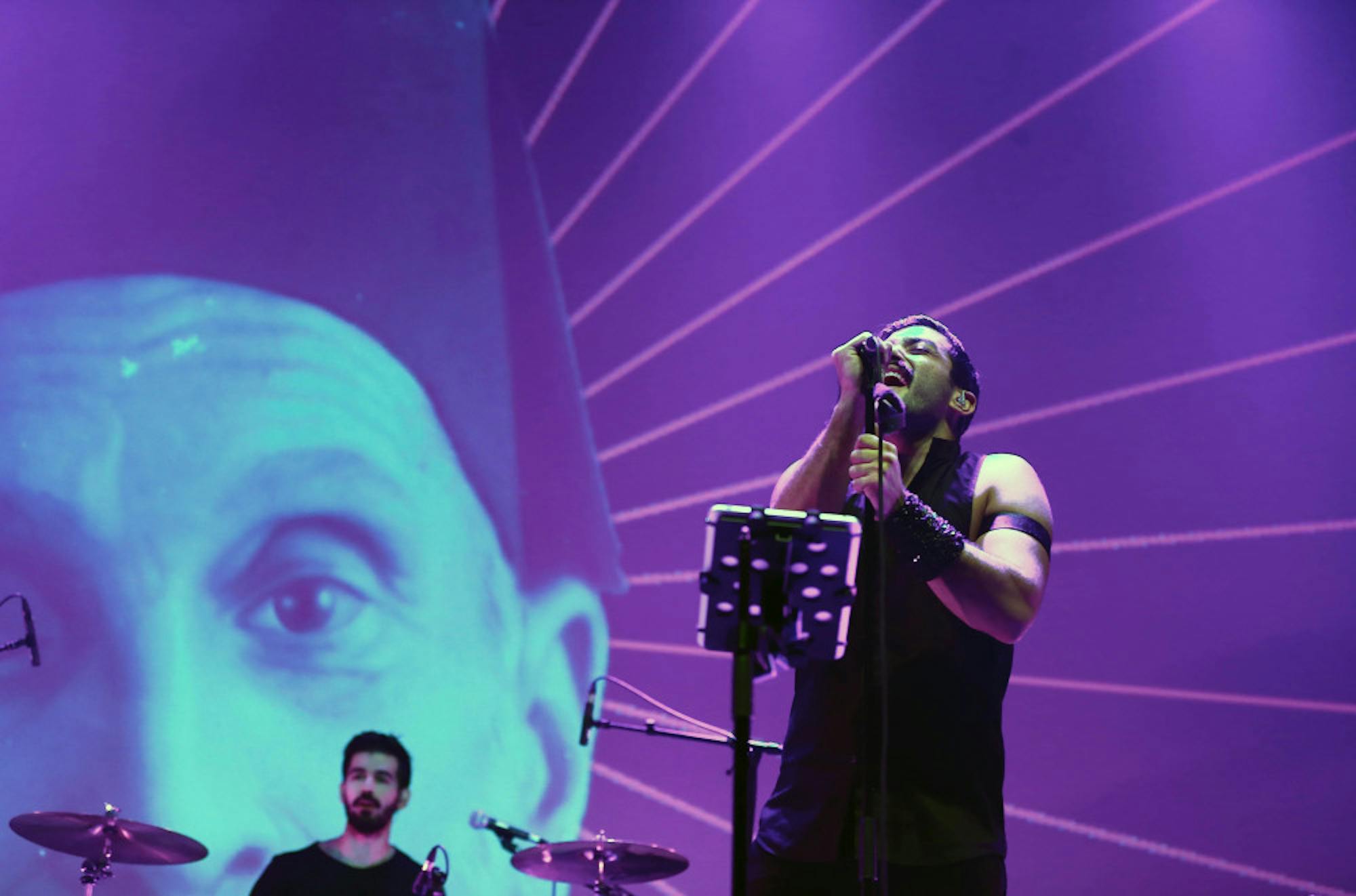The line outside The Sinclair on Sunday, Oct. 22 was almost unprecedented for the relatively small venue. Those in the crowd were mostly college students, and they spoke in several languages including English, Arabic, French and Turkish. Although the headliner, Mashrou’ Leila, isn’t very popular in the United States, the band has gained cult status among the Middle Eastern youth and its diaspora; if the line didn't prove this, the sign that read “Mashrou’ Leila: Sold Out” did. Those who were able to score a ticket would be in for a treat for the next two hours.
There are several components to what makes Mashrou’ Leila unique. It is arguably the first Lebanese indie band to reach international fame after the "trip hop à l'orientale" duo Soapkills. They sing exclusively in Arabic which, as the fifth most spoken language in the world, needs more representation in mainstream music. The band has politically charged lyrics that touch upon gender roles, violence and masculinity. Most importantly, lead singer Hamed Sinno is the queer rock star that is missing in contemporary music.
The level of devotion toward Hamed Sinno from fans was apparent when he took the stage with the band to perform “Aoede” as the opener. It is almost impossible to resist Sinno as he flirts with his audience; he smiles and looks straight in your eye as he dances solo or, even better, with violinist Haig Papazian. He is a talented dancer and a legendary performer. In some songs, his voice sounded richer than in studio versions. Sinno was also the most energetic out of the band and was the only one who spoke with the audience throughout the show.
This is certainly not to discredit the rest of the band, which is made up of multitalented members. Although from afar it appears that Mashrou’ Leila is a Hamed Sinno project, each member of the group adds an essential flavor to the band. For example, Haig Papazian’s tender string arrangements add vulnerability to the group’s generally electronic sound. Papazian’ssolo spread in the gay Jordanian publication “My.Kali” proves that, for fans, other band members are just as appreciated as Sinno.
Queerness and Arabness are an intersection often not recognized by Middle Eastern governments.Mashrou’ Leila offers queer visibility in the region by performing songs that challenge this idea and thus are in direct conflict with the agenda of these governments. Earlier in the year, the group was banned from performing in Jordan, and a pride flag raised during a Cairo gig in September led to arrests and sparked a larger government crackdown against the LGBTQ community.
During the concert, the band performed “Khalam (S/He),” a song about gender roles, and dedicated “Tayf (Ghost)" to those who were subject to torture (including anal examination) by the Egyptian government. In a particularly tearful moment, Sinno called fans to spread the news of the crackdown that was taking place.
The mood quickly shifted back to upbeat when Sinno and the band performed more songs from their relatively long repertoire. Highlights included their newest single “Roman,” “Maghawir,” which criticizes the gun laws in Lebanon, and audience favorite “Fasateen”. Near the end of the show, Sinno asked the audience to help perform “3 Minutes” by having them sing the lyrics, which were projected on a screen. After asking how many of the people in the audience spoke Arabic, he joked, “Well for once, listen to the brown people in this country.”
The last song on the set list was "Marrikh,” which is about Sinno’s relationship with alcohol and drugs. After “Marrikh,” the band performed two encore songs, one of which was “Shim El Yasmine” from its debut album.
There aren’t many indie acts that offer something as entertaining and unique as what Mashrou’ Leila brings to the table. The concert was an extraordinary experience for not only Arabic speakers and the queer community, but for those who enjoy good music and dancing.
Lebanese indie band Mashrou’ Leila shows politics can be sexy at Cambridge gig

Summary
There aren’t many indie acts that offer something as entertaining and unique as what Mashrou’ Leila brings to the table. The concert was an extraordinary experience for not only Arabic speakers or the queer community, but for those who enjoy good music and dancing.
5 Stars





